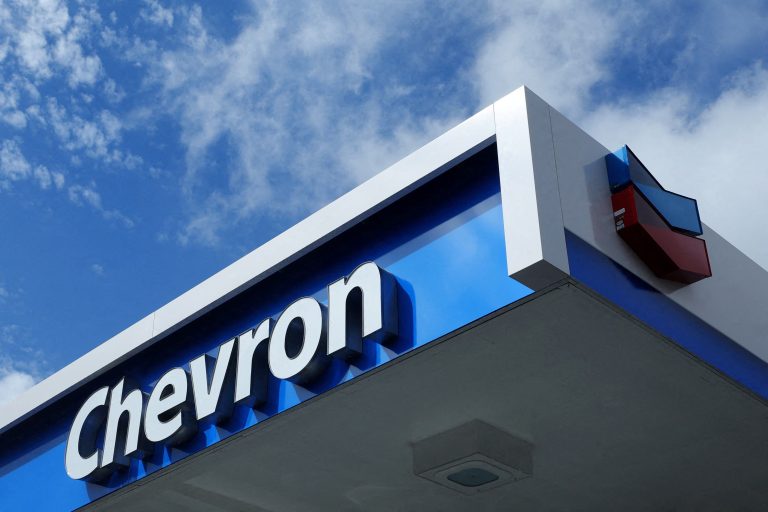
🕒 Last updated on September 24, 2025
A Louisiana jury has ordered Chevron to pay $744.6 million in damages after finding the company responsible for decades of damage to the state’s fragile wetlands. This verdict is being called historic, as it marks the first time an oil giant has been held accountable in such a way for the loss of coastal land.
A Landmark Jury Decision
The case was brought by Plaquemines Parish, a coastal community in southeast Louisiana. The lawsuit accused Chevron, through its predecessor Texaco, of breaking coastal protection laws. The company was also accused of leaving behind canals, waste, and abandoned equipment that caused lasting harm to the wetlands.
The jury awarded three separate amounts: $575 million for land restoration, $161 million for soil contamination, and $8.6 million for the cost of abandoned equipment. When interest is added, the total rises to more than $1.1 billion. While the parish had originally sought $2.6 billion, representatives said the jury’s decision is still a major victory.
Chevron has said it plans to appeal the ruling. The company claims that some of the activities mentioned in the lawsuit happened before the environmental laws existed. Despite this defense, the jury found Chevron’s actions to be a major factor in the destruction of Louisiana’s wetlands.
Big oil’s shadow network pumped millions into Charlie Kirk’s culture war machine
How Wetlands Were Damaged
Evidence presented at the trial showed how Texaco, which merged with Chevron in 2001, caused widespread damage. Billions of gallons of untreated wastewater were dumped directly into Louisiana’s marshes. Thousands of miles of canals were also dug through the wetlands, breaking apart the natural land barriers that protected the region.
These actions weakened the state’s natural defenses. Wetlands usually act like a sponge, soaking up storm water and slowing down hurricanes. But with the canals and waste damage, the wetlands lost much of this power. Experts say this made the effects of sea level rise, hurricanes, and flooding even worse.
Over the last 100 years, Louisiana has lost more than 2,000 square miles of coastal land. This is larger than the entire state of Delaware. Officials have also warned that without strong action, the state could lose another 3,000 square miles in the future. These disappearing wetlands are not only home to wildlife but also help protect important ports and oil infrastructure that serve the entire country.
Chevron’s attorneys argued that other causes, like levees along the Mississippi River, also played a big role in land loss. The levees stop natural sediment from rebuilding the delta. They said it was unfair to blame only the company for problems that had many causes. They also claimed that the $1.1 billion restoration plan was unrealistic and designed to exaggerate the damages.
Senate committee cracks down on secret fossil fuel lobbying to strip EPA powers
Despite these arguments, the jury agreed with the evidence that oil drilling practices caused major destruction and that the company should pay to help restore the coast.
Dozens of Similar Lawsuits Ahead
The lawsuit against Chevron is only the beginning. Plaquemines Parish alone has filed 20 more cases against different oil and gas companies. Across Louisiana, dozens of lawsuits are waiting in the courts. Each of these cases focuses on the role of oil and gas activities in damaging the coastal wetlands.
Oil companies have fought hard to stop these cases. They have tried to move them to federal court, where they believe judges may be more favorable to their side. So far, these attempts have not worked. They have also pushed lawmakers to pass new laws that would stop the lawsuits, but those efforts failed as well.
This ruling is especially important because Louisiana faces a funding gap for coastal restoration. Many projects that protect communities and infrastructure are expensive. In the past, much of the money came from BP’s settlement after the Deepwater Horizon oil spill. Those funds are now running out. The Chevron verdict adds another potential source of money to rebuild the coast.
Supporters of the lawsuits argue that holding oil companies accountable is essential. They say the money from damages can go toward repairing the wetlands that act as shields for the state. Without them, storms and rising seas could cause even greater damage.
Opponents warn that such lawsuits could harm Louisiana’s economy by driving away oil and gas investment. They argue that the state’s position as a leader in energy production may be at risk.
Regardless of the debate, the jury’s decision in this case has made history. It has put a spotlight on how much damage was caused by decades of oil drilling practices and highlighted the urgent need for restoration efforts across Louisiana’s coast.